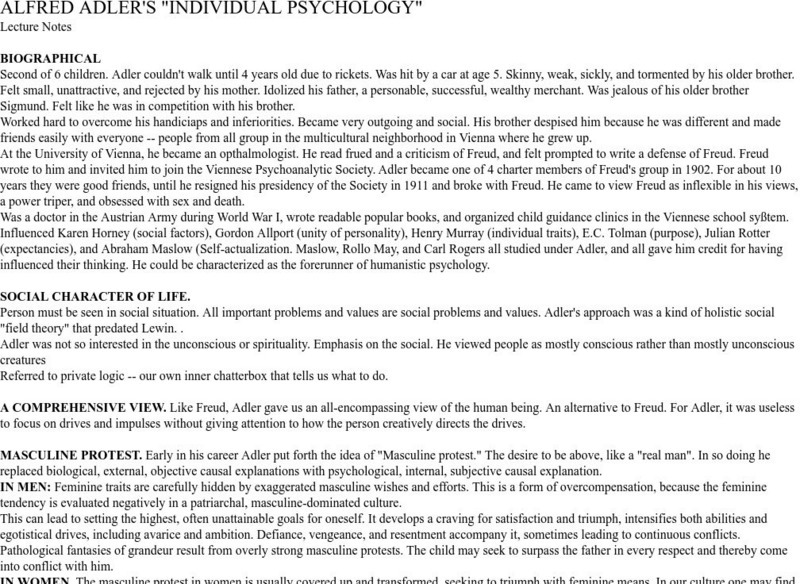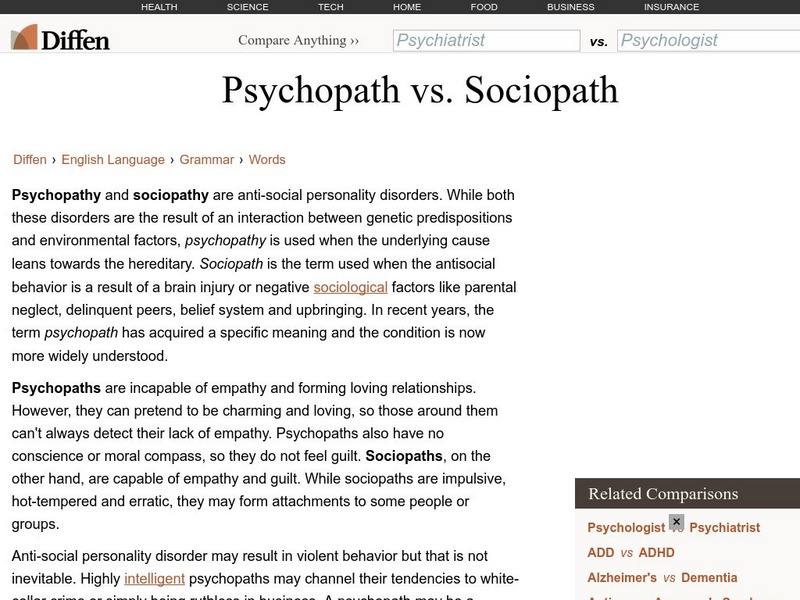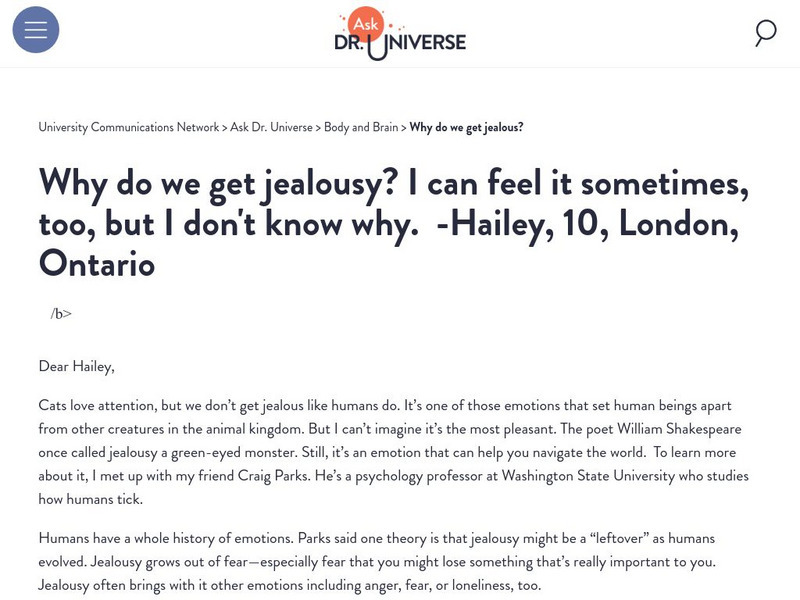Other
Psych Web: Psychology: An Introduction: Chapter 12: Defining Abnormal Behavior
Describes the different criteria that can be used to identify behavior that is abnormal. Includes comprehension questions.
Other
Psychological Self Help: Anger and Aggression
This resource provides information about anger and aggression.
Sonoma State University
Sonoma State University: Alfred Adler's Individual Psychology
Gives biographical overview and explanations of Adler's theories.
American Psychological Association
Apa: How Much News Coverage Is Ok for Children?
This article from the American Psychological Association provides tips about how to limit news exposure after tragic events.
PBS
Pbs: The Perilous Fight: America's World War Ii in Color
Online home of the PBS documentary "The Perilous Fight" provides access to an eclectic array of color photographs and films of World War II at home and abroad. Overviews, contextual clues, maps, letters, and similar resources can be...
PBS
Pbs Teachers: Is Love in Our Dna?
Participate in an online poll to discover what features instinctively guide people when choosing a mate. Consider which traits, both physical and social, are "universally" considered attractive to potential mates, and why.
University of Virginia
The University of Virginia: The Crowd: A Study of the Popular Mind
A classic psychological text by Gustave Le Bon on crowd behavior, first published in 1896. The full text of this work is organized by chapter.
Shippensburg University
Shippensburg University: Attribution Theory
Course notes explaining what attribution theory is and three different models of attribution theory. These include the Correspondent Inference Theory of Heider and Jones, Harold Kelley's Covariation Model, and Weiner's Model of...
C3 Teachers
C3 Teachers: Inquiries: Economic Happiness
A learning module on how happiness is measured through an economic lens. It includes several supporting questions accompanied by formative tasks and source materials, followed by a summative performance task. Topics covered include why...
AdLit
Ad lit.org: Boys and Books
The statistics are consistent: Young male readers lag behind their female counterparts in literacy skills. This article looks at the social, psychological, and developmental reasons why, and suggests solutions - including the need for...
TED Talks
Ted: Ted Ed: Should You Trust Your First Impression?
You can't help it; sometimes, you just get a bad feeling about someone that's hard to shake. So, what's happening in your brain when you make that critical first judgment? Peter Mende-Siedlecki shares the social psychology of first...
Sonoma State University
Sonoma State University: Karen Horney Lecture Notes
Lecture notes from a psychology professor. Excellent site for capturing the main topics relevant to Karen Horney and her theories - biography, relationship to Freudian psychology, explanation of all major terms and theories, development...
CommonLit
Common Lit: Can We Cultivate Our Own Happiness
Martin Seligman coined the term "positive psychology" to describe his exploration of how people can improve their own happiness. In this report from 2002, ABC News explains Seligman's research and findings in the field of positive...
Other
English Made in Brazil: Vygotsky
Discusses the social aspects of language acquisition according to Vygotsky.
Diffen
Diffen: Psychopath vs. Sociopath
Start learning about two anti-social personality disorders with the comparison chart for psychopathy and sociopathy. Then extend the learning with an article and video about these mental illnesses.
TED Talks
Ted: Ted Ed: Why Are We So Attached to Our Things?
Our sense of ownership emerges incredibly early. But why do we become so attached to things? Christian Jarrett details the psychology of ownership. [4:34]
Other
Influence by Robert B. Cialdini, ph.d.
Covers the six principles of influence: commitment, consistency, social proof, liking, authority, and scarcity.
Washington State University
Washington State University: Ask Dr. Universe: A Green Eyed Monster
Why do we get jealous? What causes the feelings? A psychology professor at WSU helps explain the feeling of jealousy.
Other
Miami University: Intergroup Bias in American Culture
This article examines intergroup bias in American culture. They discuss the levels of bias and try to explain why it happens. At the bottom of the page there are links to different places where bias takes place (political, academic, and...
Other
Optimistic Bias in Perceiving Physical and Mental Health
This article looks at the tendency to view oneself as invulnerable to experience negative life events. They suggest this goes hand in hand with the tendency to overestimate one's probability of experiencing postive life events. (Miami...
Duke University
Racism and Sexism: A Collective Struggle: A Minority Women's Point of View
This site provides an article that discusses sexism and racism against women.
Other
Massey University: Vygotsky
An introduction to some of the basic concepts of Vygotskyean theory. Sections on higher and lower mental functions, intramental vs. intermental abilities, and the zone of proximal development.
Other
Massey Univ.: Saying, Showing, Gesturing, and Feeling
This paper by John Shotter examines language development through Wittgenstein and Vygotsky. He contrasts the theories of language development from both of these psychologists.
Other popular searches
- Obedience Social Psychology
- Social Psychology Attitude
- Discuss Social Psychology
- Social Psychology Powerpoint
- Prejudice Social Psychology
- What Is Social Psychology
- Social Psychology Aggression
- Social Psychology Influences
- Altruism Social Psychology
- Social Psychology Love
- Altruism + Social Psychology
- Social Psychology Law






















